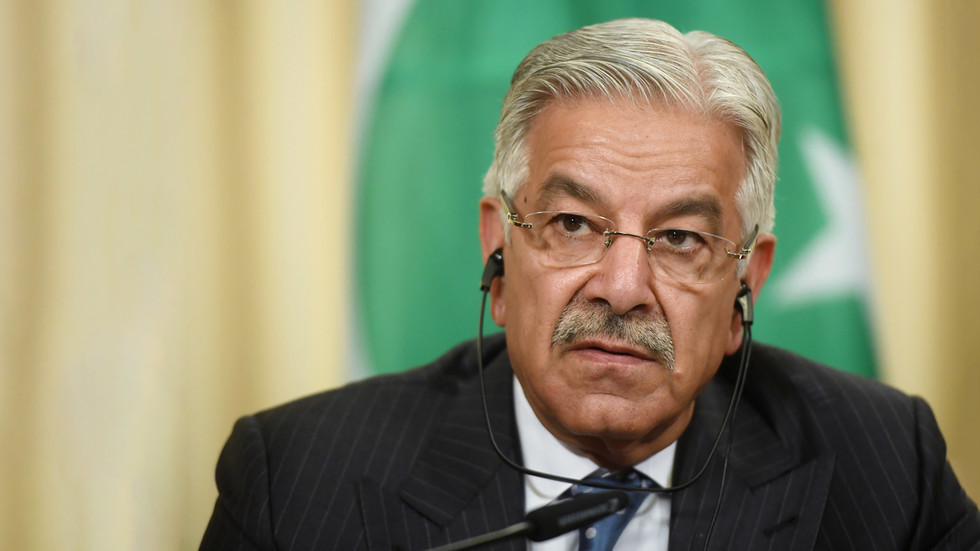ISTANBUL — Peace talks between Pakistan and Afghanistan aimed at averting further border clashes have collapsed into a deadlock, according to Pakistani Defense Minister Khawaja Asif, who blamed the failure on Kabul's reluctance to commit to a written agreement.
The negotiations, hosted in Istanbul and mediated by Turkey, marked the third round of discussions between the two neighbors since deadly skirmishes erupted along their shared border last month. Asif, speaking in an interview with GEO News, described the talks as entering an indefinite phase with no plans for a fourth round, raising concerns about the fragility of a ceasefire brokered earlier in Qatar.
“There is a complete deadlock. The negotiations have entered an indefinite phase,” Asif said. He emphasized that Pakistan would only accept a formal written accord, rejecting verbal assurances from the Afghan side. “They wanted verbal assurances to be accepted, which is not possible in international negotiations,” he added.
Afghan officials, however, offered a different perspective on the breakdown. Zabihullah Mujahid, spokesman for the Islamic Emirate of Afghanistan, attributed the failure to Pakistan's demands that Kabul take responsibility for Islamabad's internal security issues. Mujahid described this as beyond Afghanistan's “capacity,” while affirming that the Taliban administration had not violated the existing ceasefire and intended to continue observing it.
“The ceasefire that has been established has not been violated by us so far, and it will continue to be observed,” Mujahid said.
The Istanbul talks, which began on Thursday, were overshadowed by reports of fresh gunfire along the border that same day. Both sides accused each other of initiating the exchange near Spin Boldak, a key border town in southern Afghanistan along the 2,600-kilometer (1,600-mile) frontier. Pakistani officials claimed Afghan forces started the shooting, while Kabul countered that Pakistani troops were the aggressors.
This incident highlighted the ongoing volatility despite the ceasefire agreed upon during October talks in Doha, Qatar. Those earlier negotiations, lasting five days, had temporarily halted hostilities following clashes that killed dozens in September — the most severe violence since the Taliban regained control of Afghanistan in 2021.
Asif expressed gratitude to Turkey and Qatar for their mediation efforts, noting that both countries supported Pakistan's position. “They support our stance. Even the Afghan delegation agreed with us; however, they were not ready to sign a written agreement,” he told GEO News.
The root of the tensions lies in longstanding disputes over border security and militant activities. Islamabad has repeatedly accused the Taliban government in Kabul of harboring fighters from the Tehreek-e-Taliban Pakistan (TTP), a militant group responsible for numerous attacks within Pakistan. Afghan authorities have consistently rejected these allegations, insisting they do not provide sanctuary to such groups.
According to reports from both nations, the September clashes resulted in significant casualties, with estimates varying but confirming dozens dead on both sides. The violence erupted in areas along the Durand Line, the porous border established in the 19th century that has long been a point of contention between the two countries.
Mujahid's statement underscored Afghanistan's commitment to the ceasefire despite the talks' failure. He suggested that Pakistan's insistence on linking the border issues to broader internal security responsibilities was unrealistic, given Afghanistan's ongoing challenges in stabilizing its own territory post-2021.
Analysts point out that the collapse could exacerbate regional instability, particularly as both nations grapple with economic hardships and security threats. Pakistan, facing a surge in TTP attacks that have killed hundreds since the Taliban's return to power, has conducted airstrikes into Afghan territory in the past, further straining relations.
The Istanbul meeting was intended to build on the Doha ceasefire, but the refusal to formalize agreements has left diplomats pessimistic. Asif indicated that without a signed document, Pakistan could not guarantee the truce's longevity, warning that the ceasefire would only hold “if there are no attacks from Afghan territory.”
Looking ahead, the absence of scheduled follow-up talks leaves the door open for renewed conflict. Officials from both sides have not commented on potential involvement from other international mediators, though Turkey's role as host suggests continued diplomatic interest in the region. The broader implications include potential impacts on trade routes and refugee flows, with millions of Afghans residing in Pakistan amid ongoing humanitarian crises.
As tensions simmer, the international community watches closely, aware that instability along this border could have ripple effects across South Asia. For now, the fragile peace hinges on verbal commitments, but history suggests that without formal accords, such arrangements may not endure.
